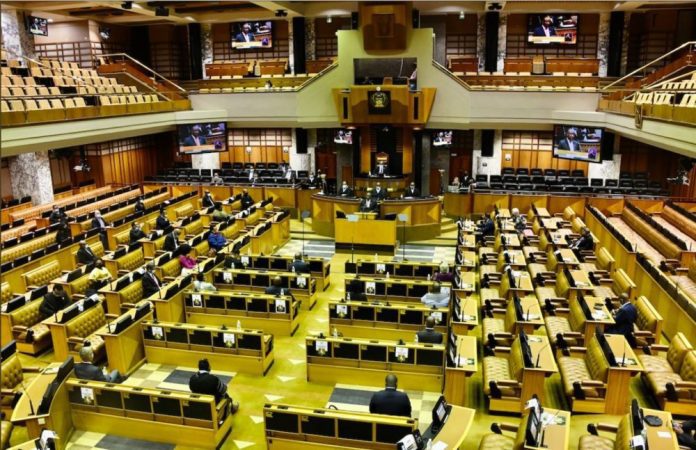“Comprehensive plans are in place to ensure a seamless transition, including onboarding new MPs,” Mothapo said in a statement.
Mothapo noted that parliament plays a crucial role in formulating legislation and holding the government to account.
“Under a proportional representation electoral system, MPs are elected to represent the people of the country and act as their voice. Parliament, therefore, is accountable to the people of South Africa.”
On Wednesday, South Africans cast their votes to determine which political parties and, for the first time, independent candidates will represent them in parliament and legislatures.
National Assembly
Mothapo said that as the legislative authority of the democratic republic, the National Assembly must ensure a government by the people by choosing a president, providing a national forum for public consideration of issues, passing legislation, and exercising oversight over the executive’s actions.
He said the National Assembly may be constituted with no fewer than 350 and no more than 400 members.
“The National Assembly is elected for a five-year term according to Section 49 of the constitution.
“When the term expires or the National Assembly is dissolved, the president must call an election within 90 days.
“Although the term of this Assembly expired on 21 May, it continued to function until the day before the first day of the elections, which was midnight on 28 May.
“Currently, there is no National Assembly, and the process to establish the new house has commenced,” Mothapo explained.
Handling of election results
The election results must be declared within seven days after an election, in terms of Section 57 of the Electoral Act.
Following this, the Independent Electoral Commission designates members of the National Assembly and gives these lists to the chief justice, who then gives them to parliament.
The first sitting of the National Assembly must occur no more than 14 days after election results are declared, and the chief justice, Raymond Zondo, will determine and gazette the date for this sitting.
Mothapo explained that before members of the National Assembly perform their functions, they must swear or affirm faithfulness to the republic and obedience to the constitution, under Schedule 2 to the constitution.
“After the swearing in of members, the chief justice presides over the election of the speaker of the National Assembly, who must, in turn, preside over the election of the deputy speaker of the National Assembly.
“The president of the republic is the last to be elected by the house because the National Assembly must be duly constituted first to exercise its power to elect the president.
“The chief justice presides over the election of the president,” Mothapo said.
Rules for the first sittings gazetted
Mothapo said the Office of the Chief Justice has officially gazetted the rules for the first sittings of the National Assembly.
The rules, as approved by Zondo, outline the procedures for the election of key parliamentary and provincial officials, including the president, the speaker and deputy speaker of the National Assembly, and the chairperson and deputy chairpersons of the National Council of Provinces.
According to Mothapo, the chief justice conducts the election of the president from among the National Assembly members, and once elected, a person no longer qualifies as a member of the National Assembly.
“Within five days, he or she must assume office by swearing or affirming faithfulness to the republic and obedience to the constitution at an inauguration ceremony,” he explained.
Term of the president and executive
Only after the chief justice has administered the oath of office to the new president does the president’s term as well as that of the other executive branch members come to an end.
“This is usually during the inauguration ceremony after the National Assembly has elected the president.
“This is intended to ensure there is no gap in the country’s administration between the election and the assumption of office by the incoming president.” – SAnews.gov.za



